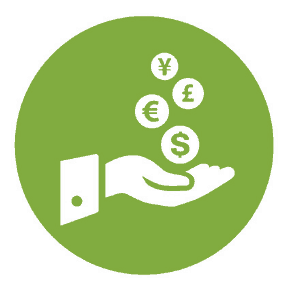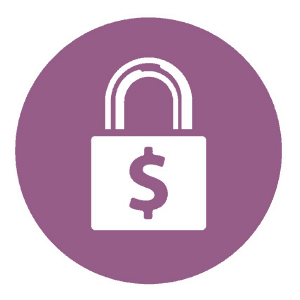FAQs
What factors to consider when shopping for a business loan?
When you’re making your final decision, there are some other factors also worth considering that may go beyond what you’ll find on our small business loan calculator. Look for and pay close attention to:
The loan’s terms
Pay close attention to the terms of the loan. They determine your repayment expenses. Longer terms can offer you more flexibility, but they often mean a higher total cost of borrowing.
Fees
Pay close attention to the loan agreement and ask questions until you are certain you fully understand all fees that your loan comes with. For example, you can ask if the loan comes with an application fee, “origination fee” or an “administrative fee”.
Will the lender charge an extra fee for NSFs? There may also be a fee applied if you decide to make monthly repayments on your loan too early. Consider these costs when determining the full cost of a business loan.
Repayment structure
Different financing products are repaid differently. For example, a typical term loan has the same fixed monthly payment frequency and repayment amount. However, a Merchant Cash Advance works differently, where the loan is repaid daily, based on the percentage of sales for that day, which means you’ll repay more when you sell more, and less when you sell less. Utilize a product that fits your business model and industry.
What is the average interest rate for a small business?
Your rates will depend on your credit rating and your business’s financial information, such as your monthly sales volume. If you have a good credit history and apply for a loan from traditional lenders (banks, credit unions) you may expect the APR to be 4%-12%.
With alternative online lenders, the annual percentage rate may be 15% and higher, because their qualification requirements are more relaxed and they charge extra for taking on more risk.
Check out our comparison of the best business loan lenders to find the right solution for your business.
How do I qualify for a business loan online?
Getting a business loan online is very easy and you can do it entirely online. You’ll need to provide paperwork such as your business registration documents and bank statements. There may be other things a lender will ask of you.
Once you submit your application, most online business lenders will get back to you with a decision almost instantly. You may also be eligible for government grants, so make sure to research those options for your business.
How can I get a business loan online?
Below you will find a list of online business loan providers that can get you business financing in as little as 24-48 hours. These lenders have been carefully verified and selected by Smarter Loans and are some of the most reputable financial companies in Canada.
Click Apply Now next to a top bank or company of banks of your choice, or select any of the other lenders below to visit their bank profile and learn more about their business plan specific products.
How much can you get for a business loan in Canada?
The amount you can secure through a business loan in Canada varies based on several factors including your credit rating, business financials, expenses and the lender’s terms.
It could range from a few thousand to several million dollars. It’s advisable to consult with multiple lenders to understand the amount you are eligible for.
What is a good interest rate for a business loan?
A good interest rate for a business loan varies depending on various factors including your credit rating, the economy, and lender terms. As of the last update, typical business loan interest rates range from 2% to 10%. However, rates can be higher for riskier businesses or lower if secured by collateral.
How much can you pull out for a business loan?
The amount you can pull out for a business loan depends on many businesses: your business’s financial health, your credit score, and the lender’s terms.
Evaluate your repayment capacity and the business’s cash flow and financing needs before deciding on the loan amount.
How do I qualify for a small business loan?
To qualify for a small business loan, you generally need to have a good credit score, a solid business plan, positive financial statements, and sometimes collateral to provide personal back.
Meeting with a financial advisor or lender can provide personalized advice based on your circumstances.
Is a business loan paid monthly?
Yes, business loans are typically all loans repaid in monthly installments, which include both principal and interest. However, the full monthly repayments and payment frequency may vary with different lenders and loan types, so it’s advisable to confirm the repayment schedule with your lender.
How to calculate how much loan you can get for business loans?
The loan amount you can secure for your business invoice financing varies based on your personal credit score, business financials, and the lending institution.
It’s advisable to consult with multiple lenders to understand the maximum amount of invoice financing you are eligible for.
How do you calculate what a loan payment will be using a small business loan calculator?
Loan contributions can be calculated using the formula shared above or by using a business loan calculator, which requires you to input the principal amount, interest rate, and loan term to estimate your monthly contributions.
In addition to the formula and calculator method, consulting with a bank can provide a more personalized insight into your loan payment structure. Banks often have loan officers who can help calculate the monthly payment on loans, taking into account various factors that might affect your repayment schedule.
For instance, SBA loans, which are partially guaranteed by the Small Business Administration, may have different terms and conditions compared to conventional bank loans. The nature of SBA loans, being designed to assist small businesses in obtaining necessary funding, often translates into more favourable terms for borrowers. Furthermore, the backing of the SBA often provides banks with a level of assurance, which can translate to lower rates of interest in pay and more flexible repayment terms. The process of applying for SBA loans can be somewhat more involved due to the additional layer of scrutiny from the SBA, but the benefits often outweigh the extra effort.
It’s advisable for business owners to compare the terms of SBA loans and conventional bank loans to determine which financing option aligns better with their business needs and financial capacity. The unique structure of SBA loans, with the involvement of the SBA often makes them a more attractive option for small businesses seeking to secure funding while minimizing costs.
Calculate in advance utilizing a business loan calculator before your consultation. Get a preliminary understanding, enabling a more informed discussion with the loan officer. Calculate monthly payment, interest rate, and total cost of the loan for cash flow planning and ensuring that you can pay back the loan as per the agreement.












